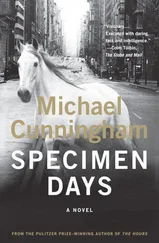“We knew you were on Montaraz,” RuthClaire said. “But we thought you were working on the Austin-Antilles coffee plantations.”
“I am. How do you think I bought a motor scooter down there at import prices?”
“You’re supposed to be in the Dominican Republic,” Caroline said, “doing demographic studies of the canecutters. To take that job, you left Atlanta without even telling me goodbye.”
Christ, I thought. Caroline’s really cleaning out her psychic cupboards today….
“Caroline, I wrote you about not saying goodbye, and I did do demographic work in the Dominican. But I took that job to escape a bad situation at Emory and to position myself close enough to Haiti to do independent research on the Rutherford habilines. As soon as I could, I finagled a transfer from the Austin-Antilles sugar operation to the coffee ranches here on Montaraz.”
“Doing what?” Caroline asked. “Installing punch clocks for the peasants?”
“Supervising the construction of concrete drying platforms, Caroline. They’ve had them since the thirties on Haiti itself, but the workers here on Montaraz have always resisted the washing and drying process. Austin-Antilles was afraid to push them too hard for fear of provoking work stoppages. About three months ago, I implemented an education program with the help of the Pan American Development Foundation. A month ago, we actually got platform construction under way.”
“What’s demographic about that, Brian? Where does your anthropological background come in? How does it help the laborers themselves?”
“Not much maybe, but it’s the job that got me transferred over here. It’s valuable work economically, Caroline—it benefits the company. But my ulterior motive was to find Adam’s people. I’ve searched this island many times since March, using my work as cover, and when the Montarazes settled here, I knew it was only a matter of time. Blair came. And then, icing on the cake, you and—” He gestured at me.
“Caroline’s husband,” I said.
“Icing on the cake?” Caroline mocked. “Because you could finally get what you wanted, namely, unauthorized access to the habilines.”
“With you and Mr. Loyd along, it wasn’t hard to follow you up here, if that’s what you mean. Mr. Loyd was so slow I had to sit down every couple of minutes to keep from stepping on his heels. Finally, he cracked up and went down on his fanny for a couple of hours.” He put his hat on, tightened its draw string under his chin, and stuffed his hands into his bush-shorts pockets. “I’m glad you’re okay, Mr. Loyd. I hung back a while, to figure out what was going on—but when Caroline returned to you and the two of you started arguing, well, it didn’t seem fair to sit there listening, so I made a big circle around you and came on up here to Habiline City.”
“Prix-des-Yeux,” RuthClaire corrected him. “You think following people without their knowledge is less despicable than eavesdropping on them?”
“Ma’am?”
“Why didn’t you come to our cottage, knock on the door, and ask us to bring you here? Didn’t that ever cross your mind?”
“I knew you didn’t want to see me, Mrs. Montaraz. You ducked me in the market one day.” He shook his head. “Don’t deny it. Don’t apologize. Anyway, if I’d done that, if I’d come to you and asked you to bring me up here, would you have done it?”
“Of course not,” RuthClaire said.
Brian Nollinger shrugged, then glanced about to see if anyone was sneaking up behind him to knock him senseless with a monkey-coco club.
I glanced about, too. On the sides of the houngfor sat squatter’s huts of cardboard, plywood, scrap metal, palm thatching, and broken cinderblocks. These dwellings might have been transported in from Shantytown in Rutherford’s Port—except that whoever made them had refrained from using any tin or glass, and had not employed any scrap metal on their roofs—because the habilines had no wish to disclose their village’s location to searchers in small aircraft. And so Prix-des-Yeux had an earthy drabness and a natural green canopy concealing its modest environs from aerial snooping.
“Now you’re here,” RuthClaire asked Nollinger, “what do you intend to do?”
“Study the habilines. With your permission, I’d like to do field work here.”
“With our permission? You did all you could to avoid asking for it, mister!”
“But now that I know where the Rutherford Remnant makes its home, surely you’ll let me follow up. I admire Adam. I’m sympathetic to his people’s desire to live out their lives as an autonomous community. Most of my work has been in primate ethology, yes, but that’s not an inappropriate background for such research. I’m strong on method, a good organizer, and can do whatever I put my mind to, given a chance. Supervising the construction of coffee-drying platforms proves that. Moreover, I’m able to—”
“Brian, old boy, you’ve got a job,” I said. “So just skip the self-serving resume.”
“What you lack,” RuthClaire told him; “is discretion and a basic regard for others’ feelings. To you, these people—” waving at the temple and nearby shanties, a township barren of visible inhabitants—“well, they’re nothing but subject matter. As I’m nothing but an obstacle to research and Adam’s only a means to personal advancement.”
“Forgive me, but that’s not fair. Remember when I showed up at Abraxas to apologize? Mr. Loyd here hustled me off, but I was sincere in my intentions.”
“I’m sure that’s true,” Caroline told RuthClaire.
“Caroline!” I said.
Brian hurried to add, “Can you blame an anthropologist for being obsessed with Adam? The secret of our origins may rest with these persecuted habilines, ma’am.”
RuthClaire slipped her hands into the pockets of her jeans and walked several steps away from our mutual nemesis. “Suppose you do your precious ‘field work’ here. Suppose Adam gives you a free hand. What then?”
“Ma’am?”
“What would you do with the results of your research?”
“Publish them, of course. That’s essential.”
“To whom?”
“To Nollinger,” I said. “He’ll one-up the entire paleoanthropological community, not excepting its high muckety-muck, A. P. Blair.”
“And destroy the Rutherford Remnant in the process,” RuthClaire said. “It was a small miracle they outlasted the first onslaught of scientific fortune hunters. Like their ancestors in Zarakal, they had to go underground—literally—to survive that dismaying siege. Montaraz is a small island, but their cunning and nimbleness, an inherited ability to lie low, saved them. A published account of their culture would be its death knell and eulogy. That’s not alarmism, Dr. Nollinger, but a realistic assessment of the likely results of human curiosity and greed.”
“Including yours,” I told my wife’s ex-beau.
“What if I refuse to pinpoint the location of this village?” Brian said. “It’s almost impossible to find it without prior knowledge. After all, thousands have suspected the existence of a habiline hideaway, but no one’s ever found it.”
“Until today,” RuthClaire said. “And that exception doesn’t prove the rule—it sabotages your entire argument.”
“You were careless, Mrs. Montaraz. You let a habiline woman visit your cottage, and then put her in a Jeep with your two foreign house guests. You took off as if going on a three- or four-day picnic. You never tried a single dodge to see if anyone was following you. And once on foot, you let Mr. Loyd and Caroline yak like school kids on a weekend field trip. Without such carelessness, I wouldn’t be here now.
“Well, you don’t have to be careless,” he went on. “Do things differently. Insure the site’s total anonymity. Keep doing so even after I’ve issued my monograph.”
Читать дальше












